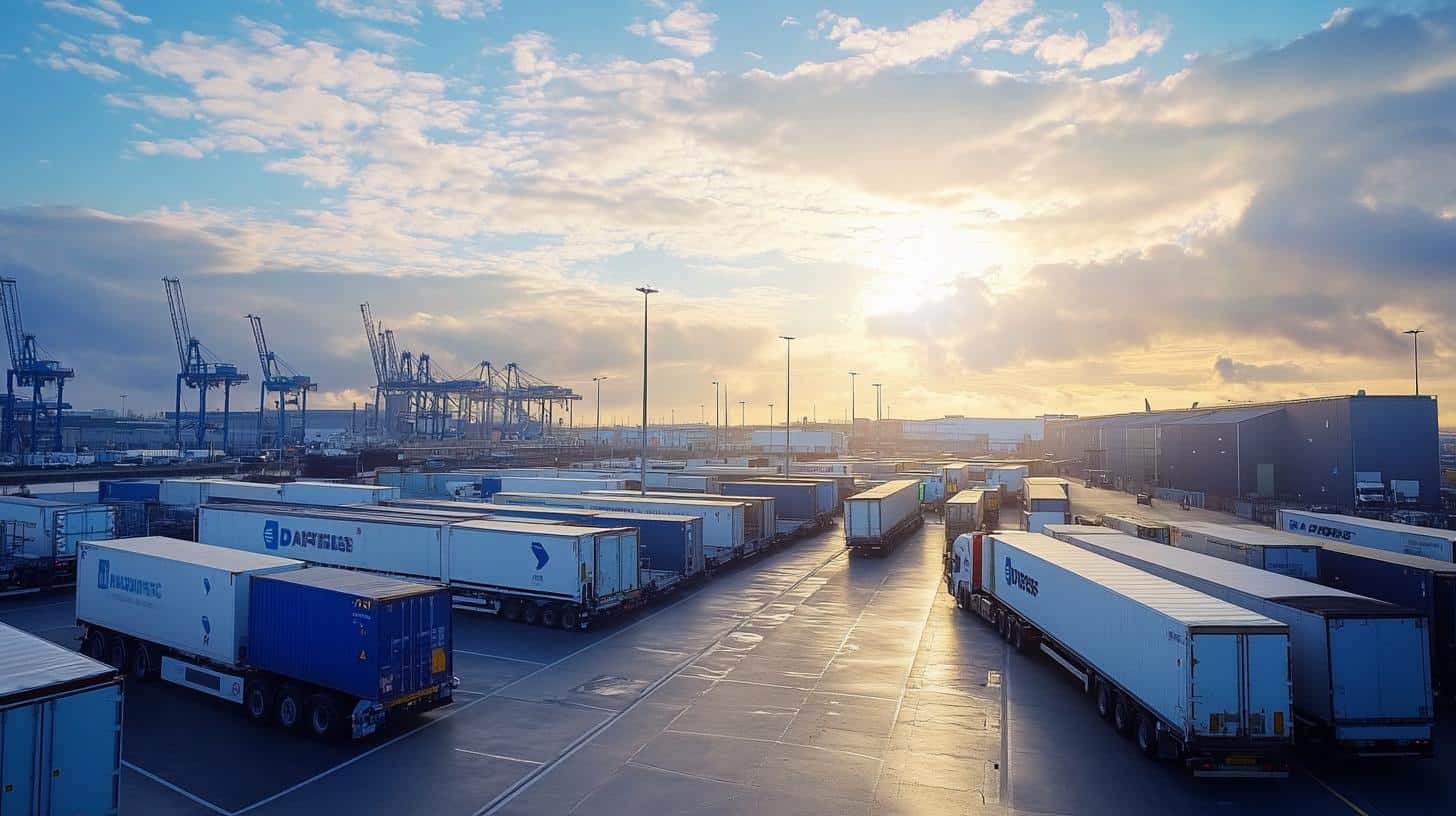In a remarkable leap toward sustainable logistics, DFDS has taken a major step by ordering 100 of Volvo’s state-of-the-art long-range electric semi-trucks. Earlier this year, they initiated their green transformation by deploying the first batch of 10 trucks, which are now actively transporting goods across northwest England and Ireland.
Since last year, DFDS proudly expanded its fleet of eco-friendly trucks, operating a substantial number of battery-powered vehicles in countries such as Sweden, Denmark, Lithuania, Belgium, Germany, and the Netherlands. By fulfilling their massive order with Volvo, DFDS aims to nearly double its fleet of electric semis, reaching an impressive total of 225 vehicles, securing the largest fleet of its kind in Europe.
DFDS’s strategic approach focuses on their proven experience in managing electric trucks across the continent, now targeting the United Kingdom. The firm acknowledges the growing demand from UK companies for sustainable transport solutions and envisions scaling its eco-conscious transport services.
Having already deployed 115 electric trucks, DFDS has clocked over 1.2 million electric miles just in the first half of 2024. This significant achievement has resulted in a remarkable reduction in carbon emissions, cutting down over 2,100 tonnes compared to diesel-powered alternatives.
Volvo’s latest innovation, the FH Electric semi, offers a substantial range of up to 600 km (about 375 miles), revolutionizing long-haul transport. While this development marks diesel’s decline, DFDS emphasizes the crucial need for enhanced charging infrastructure to fully harness the benefits of this green technology. The commitment to pushing the boundaries of sustainable transport remains steadfast, ensuring DFDS leads the charge toward a greener future.
The Future of Trucking: How Electric Semis Are Transforming Global Logistics
In a world striving for sustainability, DFDS’s recent order of 100 long-range electric semi-trucks from Volvo highlights a pivotal shift in the logistics industry. However, where does this leave the rest of the world, and how does this impactful move affect communities globally?
Unexpected Benefits Beyond Carbon Reduction
While reducing carbon emissions is the most touted advantage, the transition to electric semi-trucks brings unexpected benefits. Noise pollution, an often-overlooked environmental concern in urban areas, is reduced dramatically with electric vehicles. This transition could lead to quieter cities and improved quality of life for residents living near major transport routes.
Additionally, the reduction in reliance on diesel can lead to decreased air pollution, specifically the reduction of nitrogen oxides and particulate matter that significantly impact respiratory health. Electric trucks thus have the potential to foster healthier communities, especially in dense urban environments plagued by traffic congestion and vehicle emissions.
Infrastructure Challenges and Solutions
One of the pressing challenges that shadow this green revolution is the infrastructure required to support such a fleet. Charging stations need to be as ubiquitous as diesel stations to make electric trucking viable. This dependency on robust infrastructure opens avenues for investment and innovation in renewable energy and smart grid technology, urging governments and corporations to collaborate on future-proof solutions.
A potential advantage is the integration of solar and wind energy sources into the grid powering these stations, which can further amplify the positive environmental impact of electric trucking.
Economic Implications: Efficiency vs. Cost
Implementing wide-ranging electric truck solutions isn’t without its downsides. The initial cost of electric trucks is noticeably higher than their diesel counterparts. However, over time, the decrease in fuel costs and maintenance expenses can offset the initial expenditures, offering potential long-term economic benefits to logistics companies.
Moreover, these savings might be transferred to consumers in the form of reduced shipping costs, showcasing a possible ripple effect throughout the economy. Companies like Tesla, which are also investing in electric trucking, emphasize the efficiency and cost-effectiveness over time.
Sparking Innovation in Logistics
The pivot toward electric trucks also stimulates wider innovation within the logistics industry. As companies like DFDS strive to maximize the efficiency of electric trucks, they must embrace new technologies such as telematics for route optimization and predictive analytics for maintenance scheduling. These technologies not only enhance the performance of electric vehicles but also modernize logistics operations, potentially setting new industry standards.
What’s Next for Electric Trucking?
As the momentum for electric transportation continues to build, questions arise about future technology integrations. Could we soon see autonomous electric trucks, doubling the efficiency gains while further reducing costs? The answer may lie in ongoing developments from tech giants and traditional automotive companies.
The Road Ahead: Building a Balanced View
The transition to electric trucking, driven by pioneers like DFDS, is reshaping logistics globally. While there are challenges in infrastructure and initial costs, the potential benefits are significant — from environmental gains to economic advantages. Balancing these factors is crucial for the journey ahead, as communities and industries adapt to cleaner and potentially transformative logistics solutions.
As the world keeps a close eye on the unfolding narrative, the success of such initiatives could inspire further global adoption, heralding a new era of sustainable transport that affects us all.

















